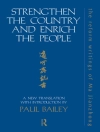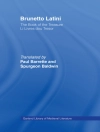Why did hagiographers of the late Middle Ages praise mothers for abandoning small children? How did a group of female mystics come to define themselves as ‘apostles to the dead’ and end by challenging God’s right to damn? Why did certain heretics around 1300 venerate a woman as the Holy Spirit incarnate and another as the Angelic Pope?
In From Virile Woman to Woman Christ, Barbara Newman asks these and other questions to trace a gradual and ambiguous transition in the gender strategies of medieval religious women. An egalitarian strain in early Christianity affirmed that once she asserted her commitment to Christ through a vow of chastity, monastic profession, or renunciation of family ties, a woman could become ‘virile, ‘ or equal to a man. While the ideal of the ‘virile woman’ never disappeared, another ideal slowly evolved in medieval Christianity. By virtue of some gender-related trait—spotless virginity, erotic passion, the capacity for intense suffering, the ability to imagine a feminine aspect of the Godhead—a devout woman could be not only equal, but superior to men; without becoming male, she could become a ‘woman Christ, ‘ imitating and representing Christ in uniquely feminine ways.
Rooted in women’s concrete aspirations and sufferings, Newman’s ‘woman Christ’ model straddles the bounds of orthodoxy and heresy to illuminate the farther reaches of female religious behavior in the Middle Ages. From Virile Woman to Woman Christ will generate compelling discussion in the fields of medieval literature and history, history of religion, theology, and women’s studies.
Table of Content
Illustrations
Introduction
1. Flaws in the Golden Bowl: Gender and Spiritual Formation in the Twelfth Century
2. Authority, Authenticity, and the Repression of Heloise
3. ‘Crueel Corage’: Child Sacrifice and the Maternal Martyr in Hagiography and Romance
4. On the Threshold of the Dead: Purgatory, Hell, and Religious Women
5. La Mystique Courtoise: Thirteenth-Century Beguines and the Art of Love
Excursus 1. Hadewijch and Abelard
Excursus 2. Gnostics, Free Spirits, and ‘Meister Eckhart’s Daughter’
6. Woman Spirit, Woman Pope
7. Renaissance Feminism and Esoteric Theology: The Case of Cornelius Agrippa
Epilogue
Abbreviations
Notes
Appendix A: Religious Literature of Formation, 1075-1225
Appendix B: Glossary of Religious Women
Works Cited
Index
About the author
Barbara Newman is Professor of English and Religion at Northwestern University. She is author of Sister of Wisdom: St. Hildegard’s Theology of the Feminine and editor and translator of Hildegard of Bingen’s Symphonia.












